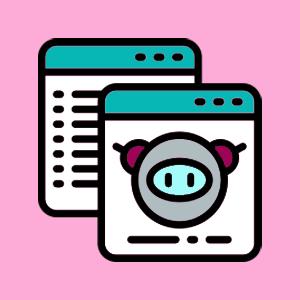 The synergy between artificial intelligence (AI) and software development has sparked a lot of conversation. AI-assisted coding, a harmonious fusion of human expertise and AI capabilities, aims to reshape the coding process. As developers explore AI tools, discussions revolve around the potential impact, transient trends, and the harmonious coexistence of these tools. This article delves into the intricate details of AI-assisted coding, unveiling its advantages, limitations, and the AI tools that software engineers can seamlessly integrate into their workflow.
The synergy between artificial intelligence (AI) and software development has sparked a lot of conversation. AI-assisted coding, a harmonious fusion of human expertise and AI capabilities, aims to reshape the coding process. As developers explore AI tools, discussions revolve around the potential impact, transient trends, and the harmonious coexistence of these tools. This article delves into the intricate details of AI-assisted coding, unveiling its advantages, limitations, and the AI tools that software engineers can seamlessly integrate into their workflow.
Unveiling AI-Driven Development: A Glimpse into Tomorrow
AI-assisted coding harnesses machine learning to equip developers with a versatile toolkit, designed to optimize efficiency, error detection, and overall coding experience. By analyzing vast datasets of open-source code, AI models cultivate an intrinsic understanding of coding conventions, syntax patterns, and established design principles. This expertise fuels real-time code suggestions, auto-completions, and preemptive error spotting. For instance, typing “import React” in an integrated development environment (IDE) triggers AI to propose “from ‘react'”, expediting coding endeavors.
Advantages of AI-Assisted Coding
- Elevated Efficiency: AI-assisted coding accelerates efficiency. Automation of routine coding tasks, like code completion and formatting, empowers developers to channel energy into strategic and creative coding elements.
- Error Mitigation: AI’s meticulous analysis minimizes errors. It functions as a vigilant partner, promptly flagging coding discrepancies, leading to polished, high-quality code.
- Promoting Best Practices: AI tools reinforce coding best practices, fostering code uniformity and nurturing coding skills.
- Seamless Workflow: AI-powered tools minimize context switches and external searches, ensuring developers maintain a seamless workflow within their chosen IDEs.
- Skill Augmentation: AI models, attuned to coding styles, serve as mentors, fostering skill growth by offering feedback and innovative suggestions.
AI Tools for Developers
Several AI tools have emerged as trusted allies, enriching the coding journey. Here are notable options:
- Tabnine: Famed for AI code completion, Tabnine expedites coding, reducing errors, and seamlessly integrating with various IDEs.
- JetBrains Datalore: Tailored for Jupyter notebooks, Datalore empowers data professionals with intelligent coding assistance, potent processing capabilities, and real-time collaboration.
- OpenAI Codex: As GPT-3’s successor, OpenAI Codex interprets natural language commands, offering an innovative approach to coding interaction.
Coding’s Future: Harmonious Coexistence
AI-assisted coding catalyzes transformation, yet human developers remain pivotal. AI streamlines repetitive tasks and offers insights, yet it cannot replicate human creativity, contextual awareness, or emotional intelligence.
In coding’s future, a harmonious coexistence emerges. Developers evolve, integrating AI tools for efficiency, code optimization, and innovation. AI tools collaborate, allowing developers to focus on higher-order tasks demanding critical thinking, innovation, and problem-solving.
Conclusion
AI-assisted coding epitomizes the alliance between human ingenuity and technological advancement. Developers, delving into AI tools for intelligent code generation and optimization, usher in an era of coding prowess. The symbiotic partnership between humans and AI cultivates an ecosystem where creativity thrives, efficiency soars, and software development evolves.
